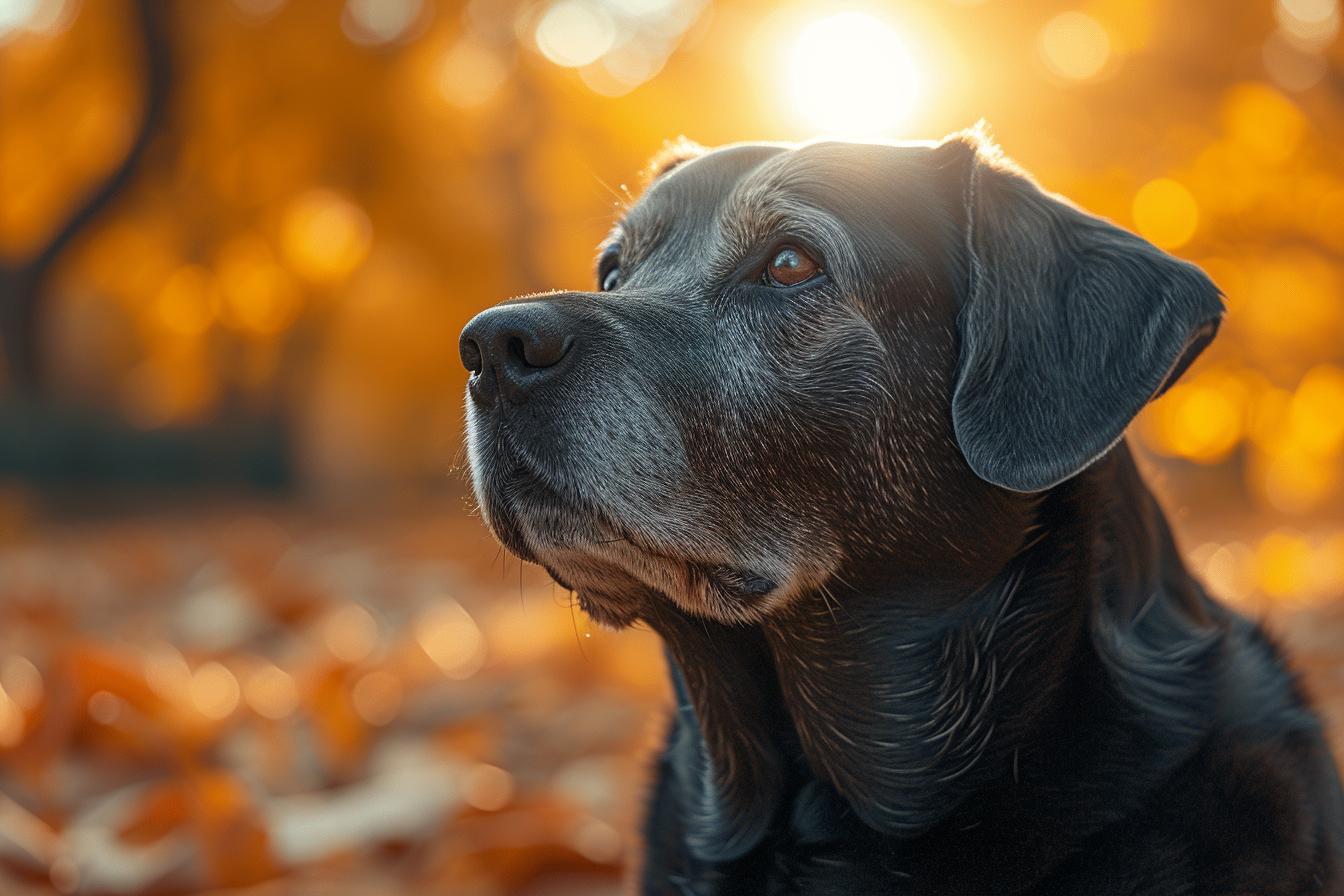Time stops for no one, not even our faithful canine companions. Recognizing the signs of aging in dogs is more than just a matter of observation; it is an emotional and responsible process that allows us to take care of them throughout their lives. Just like humans, their bodies change, their behavior evolves, and their healthcare needs intensify. This guide is an essential companion for all owners who want to understand and meet the specific needs of their senior dog, ensuring a gentle and serene aging process for their four-legged friend.
Understanding energy changes
A telltale transformation is the decrease in energy in our companions. It’s not just a matter of sudden laziness; it reflects their bodies slowing down over time. A dog that used to enjoy long walks or endless play may begin to prefer more frequent naps or short outings. This is a sign not to be ignored, and it can be an opportunity to reevaluate their physical activity program to accommodate their more moderate pace.
Towards tailored nutrition
Similarly, an aging dog may show less appetite or change their eating habits. Whether it’s a loss of interest in food or difficulties digesting certain types of food, it’s essential to monitor these changes. This may involve working with a veterinarian to adjust their diet to their evolving nutritional needs.
Movement and mobility
Difficulties with mobility are particularly heartbreaking to witness. Seeing your dog struggle to get up, climb stairs, or jump onto their favorite spot on the couch often indicates arthritis or other age-related joint issues. There are treatments and daily adjustments that can help maintain their independence and manage the pain associated with these conditions.
Senior beauty: skin and coat
Your dog’s coat can also provide insights into their age. Changes in skin and coat such as graying, coarser texture, or lack of shine are often inevitable. However, proper care and nourishment of the skin and coat can mitigate these effects and provide additional comfort for your pet.
Evolution of senses and mind
Aging dogs may experience changes in their senses, such as vision and hearing, as well as their cognition. You may notice a less responsive reaction to commands or stimuli, or disoriented behavior. The importance of this stage lies in adapting their environment to their changing abilities, ensuring their safety and comfort.
An increased relationship with the veterinarian
Finally, visits to the veterinarian play a crucial role. With age, the healthcare needs and medical monitoring increase. Regular visits allow for early detection of any health problems and effective management. Prevention remains the best approach to ensure long-term good health.
Recognizing these signs of aging in your dog is the first step in providing them with a golden retirement. This natural process, though sometimes difficult to accept, can be greatly improved with tailored attention and care that support their health and well-being. Together, we can help our four-legged companions navigate their golden years with the happiness and love they deserve.







